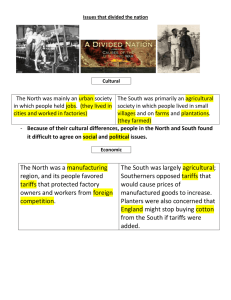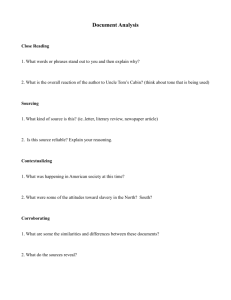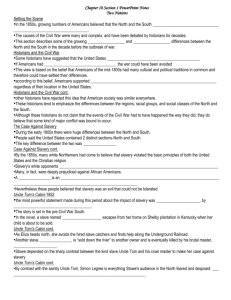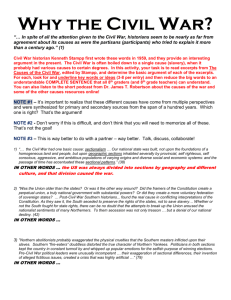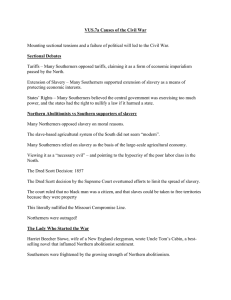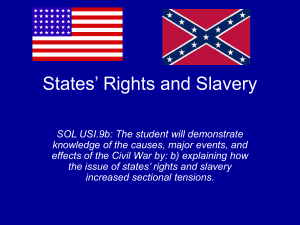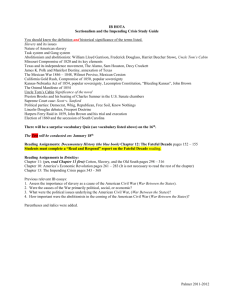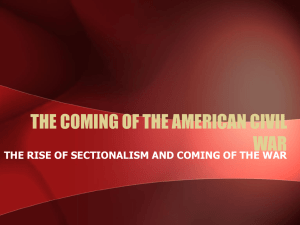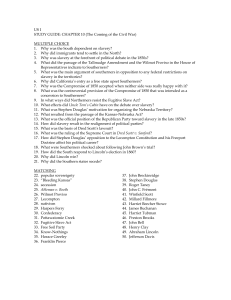Chapter 10-1 Section Review Question Examples
advertisement
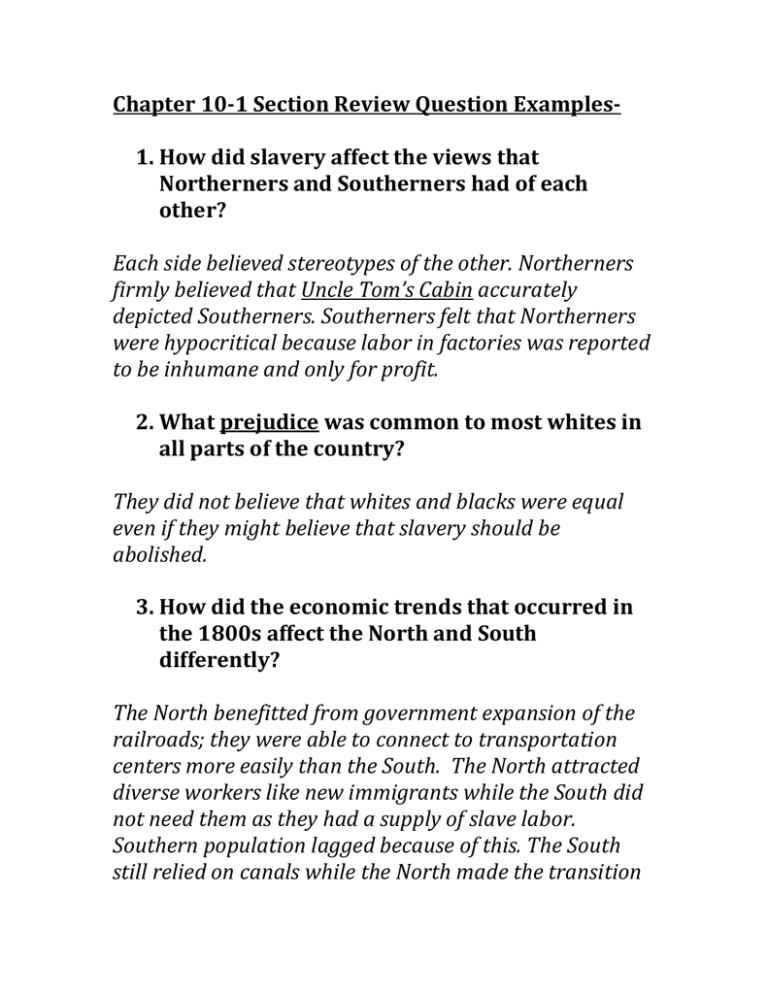
Chapter 10-1 Section Review Question Examples1. How did slavery affect the views that Northerners and Southerners had of each other? Each side believed stereotypes of the other. Northerners firmly believed that Uncle Tom’s Cabin accurately depicted Southerners. Southerners felt that Northerners were hypocritical because labor in factories was reported to be inhumane and only for profit. 2. What prejudice was common to most whites in all parts of the country? They did not believe that whites and blacks were equal even if they might believe that slavery should be abolished. 3. How did the economic trends that occurred in the 1800s affect the North and South differently? The North benefitted from government expansion of the railroads; they were able to connect to transportation centers more easily than the South. The North attracted diverse workers like new immigrants while the South did not need them as they had a supply of slave labor. Southern population lagged because of this. The South still relied on canals while the North made the transition to railroads to move their goods. The South tended to work with raw goods like cotton while the North used their industry to finish the products. As a result, the North had a lot more factories and led the South in exports and goods produced. 4. Why was Uncle Tom’s Cabin successful in changing many people’s attitude toward slavery? It introduced characters that people could readily identify with like mean, evil Simon Legree and the saintly, Tom. There was even an example of a Northern woman who challenged her husband to support abolition because that is what the bible called people to do. 5. Write a short paragraph summarizing the two main views held by historians on the issue of whether the Civil War could have been avoided. Some historians have argued if the United States had better leadership that the people could not have been persuaded to enter into a Civil War by extremists. There is also the argument that despite disagreements over slavery, there were many issues that Americans all over the country felt the same about hence a compromise could have been struck. Recently some historians have rejected the similarity idea arguing that regions, racial groups and social classes were so different that a conflict would really have been inevitable.


